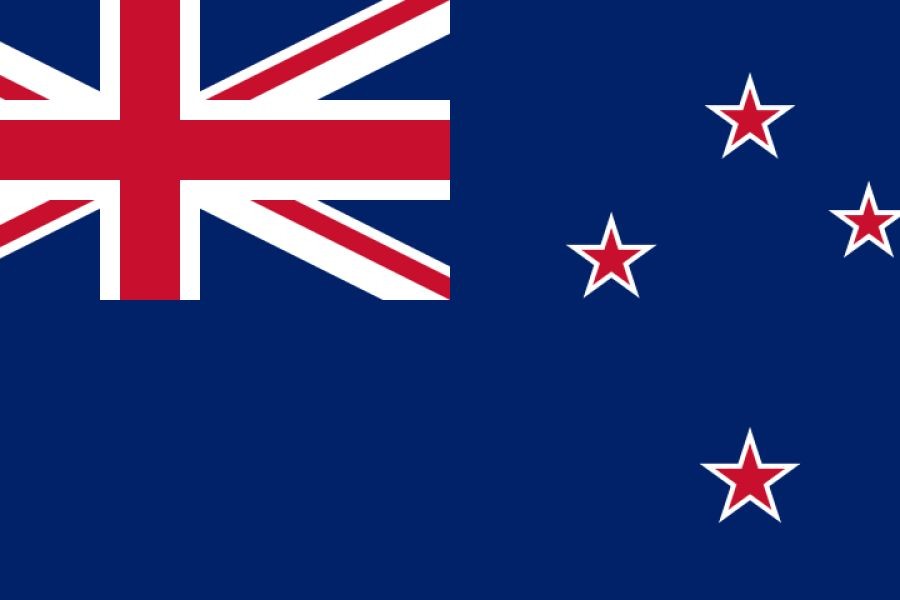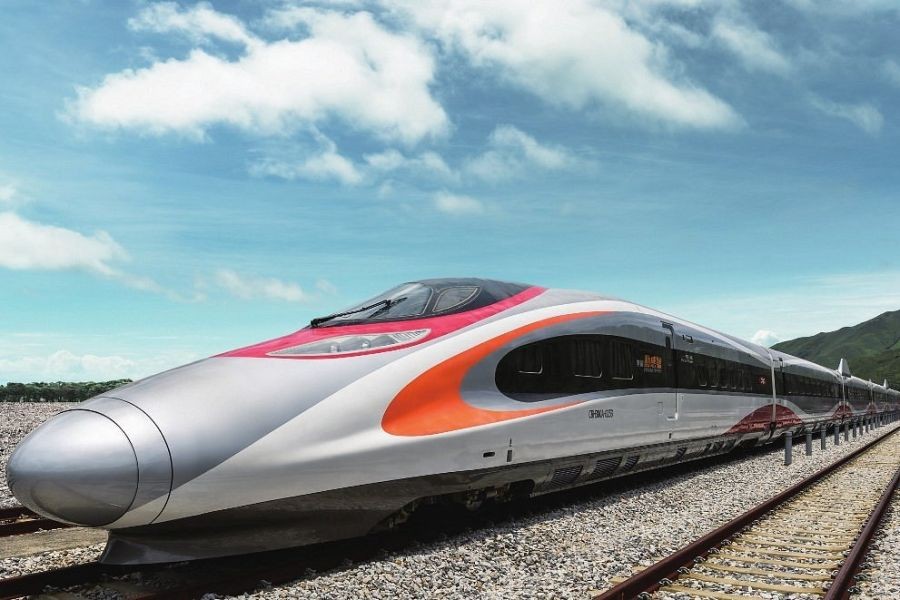Introduction
Imagine a world where New Zealand's economic future is intricately tied to the vibrant markets of Asia. This is not just a possibility, but a necessity. New Zealand's economic health is increasingly reliant on its ability to maintain and grow its economic ties with Asia, a region that represents a significant portion of the world's economic growth. But how can New Zealand ensure these ties continue to flourish amidst the dynamic shifts in global trade and politics?
As of 2023, data from the Ministry of Business, Innovation and Employment (MBIE) highlights that Asia accounted for nearly 60% of New Zealand’s total exports. The economic interdependence is clear, but the path forward is fraught with challenges that require strategic navigation. In this article, we'll delve into how New Zealand can bolster its economic ties with Asia through innovative strategies, expert insights, and real-world examples.
Join the conversation by sharing your thoughts below: How do you think New Zealand can enhance its economic relationships with Asia?
Understanding the Current Landscape
New Zealand's economic ties with Asia are underpinned by a complex web of trade agreements, cultural exchanges, and investment flows. The Comprehensive and Progressive Agreement for Trans-Pacific Partnership (CPTPP) and the Regional Comprehensive Economic Partnership (RCEP) are key frameworks facilitating trade with Asia. However, the global economic landscape is shifting, with geopolitical tensions and changing consumer preferences posing potential hurdles.
According to Stats NZ, New Zealand's exports to China alone amounted to NZD 19.5 billion in 2022, making China its largest trading partner. Yet, reliance on a single market can be risky, highlighting the need for diversification within Asia.
Key Strategies for Strengthening Economic Ties
1. Diversification of Trade Partners
New Zealand must look beyond its traditional partners like China and Japan to emerging markets such as Vietnam, Indonesia, and India. These countries offer untapped potential for New Zealand's goods and services.
Case Study: Fonterra's Expansion into Southeast Asia
Problem: Fonterra, a leading New Zealand dairy cooperative, faced saturation in its traditional markets.
Action: To counteract this, Fonterra strategically expanded into Southeast Asia, focusing on Indonesia and Vietnam. They adapted their product offerings to local tastes, investing in local partnerships and supply chains.
Result: Fonterra reported a 25% increase in revenue from these markets within two years, showcasing the benefits of market diversification.
Takeaway: Diversification not only mitigates risk but also opens up new revenue streams for New Zealand businesses.
2. Embracing Technological Innovation
Technology is a key enabler of trade and economic collaboration. New Zealand businesses should leverage digital platforms and technologies to streamline operations and access new markets.
Expert Insight: Dr. Jane Thompson, a trade analyst at the University of Auckland, notes, "Digital trade platforms and blockchain technology can significantly reduce transaction costs and enhance transparency in cross-border trade."
Embracing technology can also help New Zealand businesses meet the growing demand for digital services in Asia, particularly in markets like India and Southeast Asia.
3. Strengthening Cultural Understanding
Successful economic engagement with Asia requires an understanding of cultural nuances. New Zealand businesses should invest in cultural intelligence training to forge stronger relationships.
According to a study by the Asia New Zealand Foundation, businesses that incorporate cultural understanding into their operations experience higher success rates when expanding into Asian markets.
The Pros and Cons of Strengthening Ties with Asia
New Zealand's pursuit of deeper economic ties with Asia is not without challenges. Here, we explore both sides of the equation:
Pros:
- Market Access: Access to diverse and growing markets, offering opportunities for export growth.
- Economic Growth: Increased trade with Asia contributes to GDP growth and job creation in New Zealand.
- Innovation Exchange: Collaboration with Asian tech hubs fosters innovation and knowledge transfer.
- Diversification: Reduces reliance on traditional markets, spreading economic risk.
- Cultural Exchange: Enhances cultural understanding and global perspective.
Cons:
- Geopolitical Risks: Trade tensions and political instability can impact economic relationships.
- Market Saturation: Over-reliance on specific Asian markets can lead to saturation and vulnerability.
- Regulatory Challenges: Navigating complex regulatory environments in different Asian countries.
- Cultural Barriers: Misunderstandings due to cultural differences can hinder business success.
- Supply Chain Dependencies: Disruptions in Asian supply chains can affect New Zealand businesses.
Debunking Common Myths
Several misconceptions persist about New Zealand's economic engagement with Asia. Let's debunk some of these myths:
Myth: "China is the only market that matters in Asia."
Reality: While China is a major partner, emerging markets like Vietnam and India offer significant opportunities for growth and diversification.
Myth: "Cultural differences are too challenging to overcome."
Reality: With cultural intelligence training and cross-cultural collaboration, businesses can successfully navigate and thrive in diverse markets.
Myth: "Technology is a barrier to trade."
Reality: Technology is an enabler, streamlining operations and facilitating seamless cross-border transactions.
Future Trends and Predictions
Looking ahead, several trends and predictions are shaping the future of New Zealand's economic ties with Asia:
- Increased Digital Trade: By 2028, digital trade is expected to account for 30% of New Zealand's exports to Asia, driven by advancements in technology and e-commerce.
- Focus on Sustainability: As environmental concerns grow, sustainable trade practices will become a priority in New Zealand's economic engagement with Asia.
- Regional Integration: Strengthening regional trade agreements and partnerships will enhance New Zealand's economic resilience and competitiveness.
- Cultural Exchange Programs: Increased cultural exchange programs will foster better understanding and collaboration between New Zealand and Asian countries.
- Emerging Market Opportunities: Markets like Indonesia and the Philippines are poised for significant economic growth, presenting new opportunities for New Zealand businesses.
Conclusion
In conclusion, New Zealand's economic future is closely linked to its ability to cultivate and expand its ties with Asia. By diversifying trade partners, embracing technology, and strengthening cultural understanding, New Zealand can ensure its economic ties with Asia continue to flourish. As we look to the future, the potential for growth and collaboration remains vast, offering opportunities for businesses and the nation as a whole.
Ready to explore the possibilities? Share your thoughts and insights in the comments below!
People Also Ask (FAQ)
- How does New Zealand benefit from trade with Asia? Answer: New Zealand benefits through increased exports, economic growth, and job creation, with Asia accounting for nearly 60% of its total exports as per MBIE.
- What are the challenges of trading with Asia? Answer: Challenges include geopolitical risks, cultural barriers, and navigating regulatory environments, as highlighted by trade analysts.
- Which Asian markets are emerging as key partners for New Zealand? Answer: Emerging markets like Vietnam, Indonesia, and India offer untapped potential for New Zealand's goods and services.
- What role does technology play in New Zealand's trade with Asia? Answer: Technology streamlines operations, reduces transaction costs, and facilitates digital trade, as noted by Dr. Jane Thompson.
- What are the future trends in New Zealand's economic ties with Asia? Answer: Trends include increased digital trade, focus on sustainability, and emerging market opportunities in Southeast Asia.
Related Search Queries
- New Zealand Asia trade relations
- Economic impact of New Zealand exports to Asia
- New Zealand trade agreements with Asia
- Technological innovations in New Zealand trade
- Cultural exchange programs between New Zealand and Asia
- Emerging markets for New Zealand exports
- New Zealand's economic diversification strategies
- Geopolitical risks in New Zealand's trade with Asia
- Sustainability in New Zealand-Asia trade
- Future trends in New Zealand's economic ties with Asia































